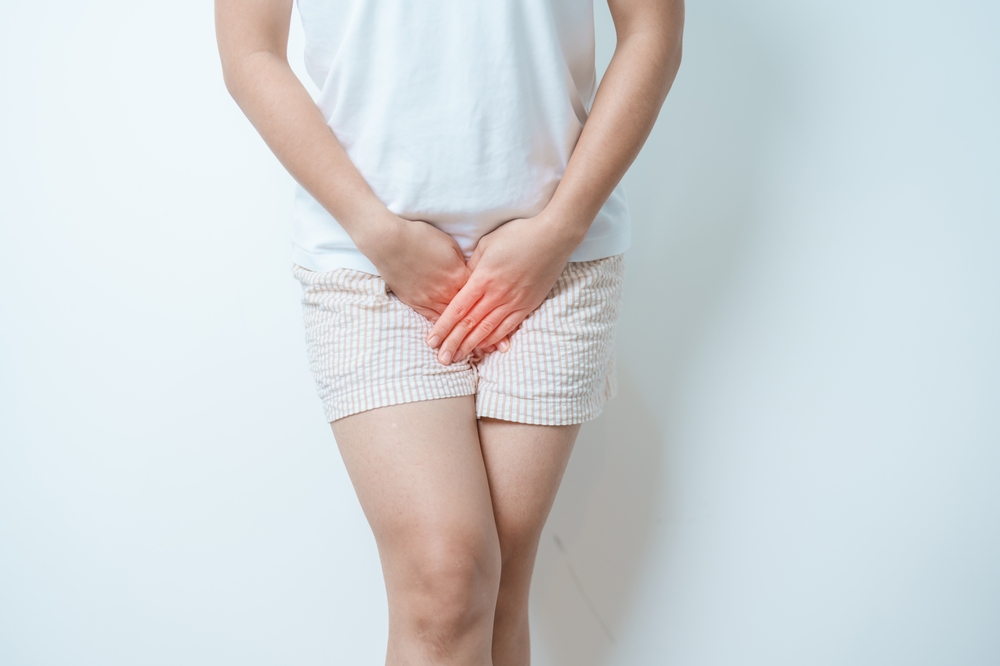Medical Director at Ginelux and specialist in regenerative gynecology and vulvar pathology, Dr. Ramón Santana, has recently published an article in the newspaper CANARIAS7 about vulvar lichen sclerosus (VLE) and has underlined the importance of managing the symptoms of VLE to improve the quality of life of women who suffer from it. From Ginelux, we would like to share with you the content of this article to spread the word on this subject.
As Dr. Santana explains, vulvar lichen sclerosus is a chronic skin disease that mainly affects the genital areas, although it can also appear on other parts of the body. Although the exact cause is not known, Dr. Santana highlights several factors that may contribute to its development. According to him, there is a genetic predisposition, which means that some people may be more prone to develop this disease than others. In addition, it has been observed that the immune system plays an important role in the development of lichen sclerosus. Physical trauma to the genital area, such as rubbing, injury or surgery, can also trigger the onset.
Symptoms of vulvar lichen sclerosus (VSD)
Dr. Santana points out the following symptoms:
- Itching and discomfort in the genital area.
- Pain or difficulty during sexual intercourse.
- Bleeding or blisters.
- Vulvar skin ulcerations.
- Scarring or narrowing of the vaginal opening.
- Irregular white skin that appears thin and wrinkled on the vulva.
- Thinning of the vulvar skin and ease of tearing or bruising.
If you experience these symptoms, it is important that you seek medical evaluation and treatment to receive an accurate diagnosis. Our gynecologists in Telde or Las Palmas will advise you at all times and help you find the right vulvar lichen sclerosus treatment for each case. You can contact us at request an appointment through the following link. One of our gynecologists specialized in vulvar lichen sclerosus will contact you to advise you and guide you through the whole process.
Diagnosis of vulvar lichen sclerosus. Gynecologic examination
Visual inspection of the vulvar area detects signs of thin white patches and characteristic skin changes associated with lichen sclerosus and assesses the degree of tissue involvement and identifies any complications, such as scarring or narrowing of the vaginal opening. In this case, our intimate health center in Las Palmas would perform one of the following diagnostic methods to confirm the presence of the pathology:
- Biopsy: In case of doubt and to confirm the presence of lichen sclerosus and rule out other conditions.
- Blood tests: Blood tests may be performed to detect autoimmune diseases that may be associated with lichen sclerosus, such as thyroid disease or lupus.
Lichen sclerosus preventive measures
Dr. Ramón Santana highlights the following measures that can help prevent LEV in women:
- Maintain good intimate hygiene to prevent infection and maintain skin health in the genital area. Skin care is essential for those with lichen sclerosus.
- It is recommended to wear cotton underwear and avoid tight-fitting clothing that may irritate and chafe the skin.
- It is important to keep the skin moisturized and avoid scratching or rubbing the affected area.
- It is important to use natural oils with proven anti-inflammatory properties to moisturize your vulvar and perianal area, reduce inflammation and symptoms and protect the intimate area from rubbing that can lead to new erosions and fissures.
- To strengthen the immune system and help reduce symptoms, it is important to eat a healthy and balanced diet, avoid stress and find ways to relax: meditation or yoga....
- Very important: avoid smoking and limit alcohol consumption.
- Maintaining a healthy weight and exercising regularly can also be beneficial in reducing symptoms and improving quality of life.
Treatment options for lichen sclerosus vulvae
Symptom management of LEV is critical to improving the quality of life of women with LEV. Topical corticosteroids are the first-line treatment for lichen sclerosus.
These medications reduce inflammation and relieve symptoms such as itching, pain and redness. In addition to topical corticosteroids, other medications may also be used to treat lichen sclerosus, including local hormone replacement.
For the treatment of those cases that do not respond to the treatments described above or in more advanced cases of lichen sclerosus, regenerative treatments and the latest technology play a very important role:
- Gynecological laser: Fractionated CO2 laser is an advanced technology that stimulates collagen production and cell regeneration. It is a safe, minimally invasive treatment with fast and effective results that significantly improve the patient's symptoms.
- Regenerative medicine based on the injection of stem cells derived from the patient's own body and the topical application of exosomes opens the door to regeneration at the dermal and epidermal level with the consequent significant improvement of symptoms, erosions, fissures, quality of life and sexual function.
- Carboxytherapy
- Vaginal and vulvar radiofrequency
- Hyaluronic acid treatments
- Vulvo-vaginal LED light
- Platelet-rich plasma
- In cases of clitoral phimosis, smegmatous pseudocysts, synechiae, narrowing of the vaginal introitus or opening, fissured granuloma, etc., surgery may be necessary to correct deformities that may occur due to the disease.
These treatments open up a wide range of possibilities and different combinations that will depend on the needs of each particular case. The results we are obtaining are very favorable and promising, both in terms of symptomatology improvement and clinical evolution.
If you wish to take preventive measures and receive the advice of a trusted gynecologist, it is essential to go to a center specialized in gynecology. From Ginelux, we recommend you to read this article on the keys to choosing the best gynecological practice in Las Palmas.



